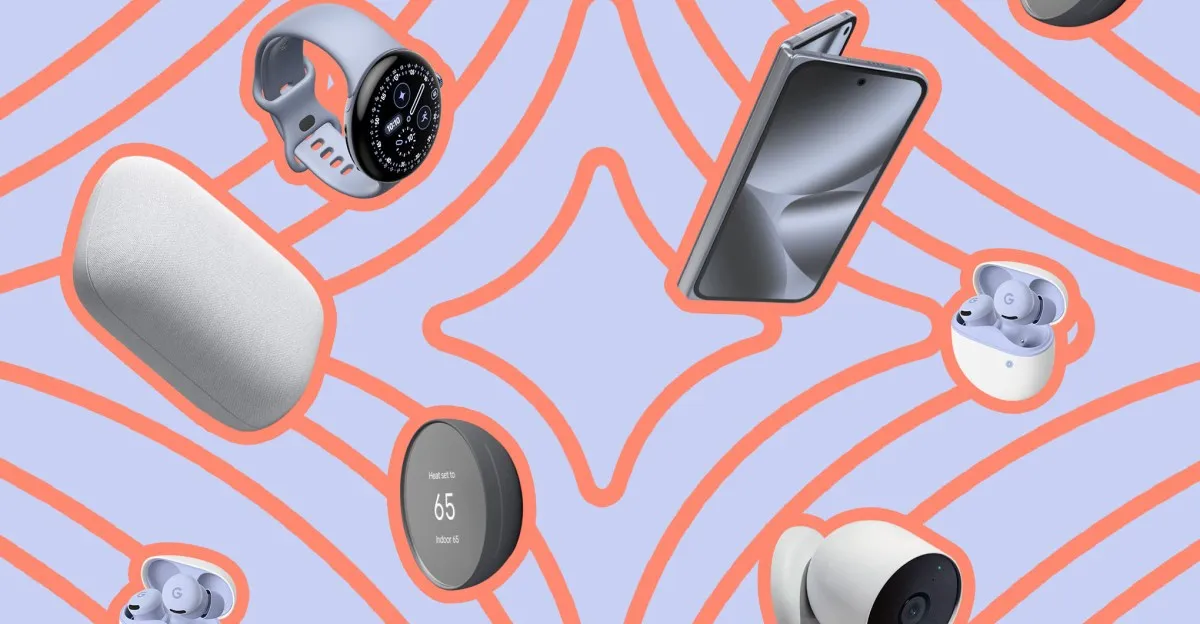
In today's fast-paced world, I often find myself dreaming of a gadget that can do it all. However, my reality involves packing one or two phones, a portable battery bank, a laptop, a Kindle, a new product for testing, and at least one pair of earbuds each time I leave for the office. My backpack is filled with a pouch of cords and adapters, and I typically wear between two and four wearable devices. This lifestyle may be classified as "gadget maximalism," but I hold out hope that one day, the tech industry will unveil the next must-have gizmo—an all-powerful device capable of replacing our phones.
Last week, I attended the Made by Google event held at a studio in Brooklyn Navy Yard, where Google showcased four new phones, a smartwatch, and a pair of earbuds. While this product launch seemed typical, there was a distinct shift in the atmosphere. The presentation was not only marked by an unusual keynote format but also by a growing anxiety surrounding the integration of AI, particularly with Google’s Gemini technology, into every product.
Instead of simplifying our array of gadgets, it appears that AI may lead to an increase in the number of devices we carry. As I sat in that Brooklyn studio, I sensed a significant vibe shift in mobile computing, especially concerning wearables. Once deemed a failing category, wearables are now being heralded as the forefront of AI innovation.
Sandeep Waraich, Google’s product lead for Pixel wearables, noted, “The first 15 years of wearables were very much about gathering data for the quantified self.” This initial phase, exemplified by Fitbit, focused on episodic data collection. However, Waraich emphasizes a transition towards continuous insights that offer more personalized experiences. Wearables generate vast amounts of data, making it challenging to extract actionable insights that keep users engaged over time. This is where AI technology can play a pivotal role, prompting every fitness tracker and app to incorporate AI features.
As Waraich elaborates, wearables are unique in their “on-body presence.” While smartphones may often be left behind or turned off, wearables ensure a constant connection to the user. For an AI assistant to be truly effective and personalized, it needs comprehensive knowledge about its user—something that an on-body device can provide.
However, the current landscape of AI hardware is still in its experimental phase. According to Google’s VP of Fitbit and Health, Rishi Chandra, we are in the “spaghetti stage,” where no one yet knows the winning formula. Consequently, various ideas, from always-listening life recorders to multimodal smart glasses, are being tested. Chandra asserts that no single form factor will dominate the market, stating, “Any religion you have now is probably premature.”
Instead of adhering to a fixed vision, Google is embracing the fluidity of innovation, as evidenced by their Android XR platform for smart glasses. The goal is to maximize the potential of existing devices while continuing to explore new possibilities in the realm of AI hardware. Waraich expresses hope that through this experimentation, Google will discover a winning combination that resonates with users.
Google envisions a future defined by ambient computing, where devices seamlessly integrate into our lives, responding to our needs without interruption. Imagine entering a room and having your AI-controlled lightbulbs adjust to a soothing setting because they communicate with your phone, which has already registered your discomfort. However, this vision cannot be realized with just one all-powerful device; it requires an ecosystem of gadgets that communicate effectively.
Chandra suggests that if Gemini becomes the cornerstone of AI technology, primarily embedded in Google hardware, it could redefine user experiences and shift perceptions about competing platforms. As the smartphone approaches its 20th anniversary, consumers are starting to view their devices more as reliable tools rather than groundbreaking innovations. Verizon CEO Hans Vestberg noted last year that the “exciting times are over,” with many users keeping their phones for three years or more. This stagnation in upgrades further emphasizes the need for AI hardware innovation.
Despite Google’s emphasis on using AI to enhance user experiences and reclaim time in our busy lives, I find it challenging to reconcile the notion of adding more gadgets with the growing sense of fatigue in our always-on society. Nevertheless, Google is fully committed to this vision, which is why devices like the Pixel 10 and Pixel Watch 4 stand out in a sea of iterative updates. The rising popularity of smart rings and the success of Meta’s smart glasses also indicate a shift toward AI wearables.
As we navigate this evolving landscape, the convergence of AI and wearables will undoubtedly shape the future of mobile technology, presenting us with new opportunities and challenges alike.